每日观察:关注Facebook移动广告点击率及粘性(7.19)
1)广告机构TBG Digital最近季度报告指出,Facebook网站广告CPM比去年同期增长58%,广告总体粘性也增长11%。其中,Sponsored Stories粘性比常规广告多53%,Facebook移动广告粘性则比Twitter广告多4倍(游戏邦注:其数据取自TBG对4060亿次广告印象、190个国家和276家客户的观察结果)。
从近两个季度来看,Facebook广告CPM呈现增长趋势(上一季度CPM也比去年同期增长41%)。Facebook广告在德国的CPM增幅最大,达到31%,在美国增幅为25%,在英国则是7%。
TBG认为这种增长主要归功于Sponsored Stories和移动广告业务,这两者的CPM均高于一般展示性广告。除此之外,Facebook引进新广告形式也对广告粘性提高产生了一定影响。
TBG报告指出,出现于Facebook页面右栏的桌面广告以及news feed广告效能远逊于移动广告。桌面广告点击率仅为0.083%,而news feed桌面广告点击率也仅为0.588%。但移动广告(出现于用户的news feed)点击率却可达到1.14%。与此同时,在Twitter的2400万次广告印象中,平均广告(包括桌面和移动广告)点击率则是0.266%,比Facebook移动广告点击率少4倍左右。
2)游戏行业元老Richard Garriott在最近采访中表示,他认为社交及手机游戏开创了“电脑游戏的第三个新纪元”,剧烈的市场变化是每代电脑游戏崛起的标志,之前的单机游戏需面向数百万玩家发售产品,MMO游戏需获取成百上千万玩家,而手机及社交领域却只要一款游戏就可以吸引近1亿玩家。
Garriott成立的第三家公司Portalarium主要开拓手机及社交游戏市场,目前仅发布一些博彩主题的Facebook游戏,以及3D MMO游戏《A Mystical Land》,上周融资700万美元以推出新款跨平台MMO游戏《Ultimate RPG》。
据其所称,《Ultimate RPG》目标是同时吸引硬核及休闲玩家,这正是当代多数Facebook游戏无法实现的一点。他将当前多数Facebook游戏称为“Ville克隆产品”,这类游戏都有一些有趣的迷你游戏以及新功能,但却不适合硬核用户,此外这些游戏最初几年的UI设计都比较糟糕,并且基本上没有什么深度。他认为这些开发者和玩家过去几年忽视了传播机制的力量,即通过应用商店或免费游戏理念让游戏实现病毒式传播,并且无需玩家预先付费。
Garriott表示《Ultimate RPG》继承了自己之前所创游戏的风格,并支持玩家自主选择是否参战。例如在《Ultima Online》当中,许多玩家选择了一些善战的角色,但也有些玩家创建了烘焙师或铁匠等无需参战的角色。
他认为MMO游戏有两种类型,一是《Ultima Online》这种风格的游戏,另一种类型则以《魔兽世界》和《无尽的任务》等游戏为代表(游戏邦注:在后面这种游戏中,每个玩家的第一角色都是战士,整个游戏世界就是一个战斗场景)。
《Ultimate RPG》计划首先发布于iOS、Android平板电脑,然后再推出Facebook和Google+等社交网络版本(尚未公布具体发布日期),将支持玩家与好友进行异步互动,访问他人的虚拟房产。无论对方是否在线,玩家都可以拜访好友的商店,如果对方正好在线,玩家就可以同好友进行实时互动和交谈,若对方不在线,玩家在离开时也能顺利执行交易。
3)据games.com报道,Insomniac旗下游戏《Outernauts》(所谓的“太空版《口袋妖怪》”)近日已在Facebook上线进行公开测试。
该游戏支持玩家展开银河之旅,搜集外星生物,并训练它们参战,另外玩家还需要通过文本故事内容完成一定任务。
4)据serkantoto报道,东京工作室GungHo旗下游戏《Puzzle & Dragons》(未绑定Mobage、GREE或Mixi等社交平台的日本社交游戏)在今年1月20日登陆日本App Store,发布仅53天就在4月份收获50万次下载量;GungHo在该月又推出了该游戏iPad版本。
目前该游戏已上线146天,已在日本App store实现100万次下载量,其Android版本也已投入开发。值得注意的是,该游戏两个版本最近还同时在日本iPad和iPhone应用营收榜单登顶。
5)在本周DAU增长最快Facebook榜单上,FreshPlanet热门游戏《SongPop》持续领先,新增DAU达40万,增幅为18%。
EA新作《SimCity Social》新增DAU为39万,增幅为43%;Social Point游戏《Dragon City》位居第三,新增DAU达20万,增幅为18%;Zynga游戏《Words With Friends》排名第四,新增DAU为20万,增幅为3%。乐元素中文游戏《开心水族箱》位居第五,新增DAU为20万,增幅为15%。(本文为游戏邦/gamerboom.com编译,拒绝任何不保留版权的转载,如需转载请联系:游戏邦)
1)Facebook Earns 58% More Per Ad Than Last Year, Mobile Ads Clicked 4X More Than Twitter Ads
Ingrid Lunden
Facebook yesterday saw a decline in share price on a report of falling user numbers in key markets like the U.S. and Europe, but in a sign of how it is firming up its business, Facebook is also making significantly more money and getting more sticky with its advertising, on the back of newer, more targeted ad formats like Sponsored Stores and mobile ads. The latest quarterly report from ad agency TBG Digital, out today, indicates that cost per thousand impressions (CPMs) on ads on the social network rose by 58 percent compared to the same period last year, with overall engagement also up by 11 percent, a reversal of the decline seen last quarter. And among Facebook’s newer units that target people more directly, Sponsored Stories saw 53 percent more engagement than standard ads, and mobile ads had four times the engagement of Twitter ads, says TBG.
Pointedly, TBG says that there is growing acceptance from brands and other advertisers of Facebook’s wider business model, blending more traditional digital advertising metrics with new metrics like social engagement to determine the value of paying to be on a platform like Facebook’s. “Our clients, upon our advice, are now willing to pay more for quality clicks and fans. Focus is shifting toward measurable engagement and the difference Social Media connections are making to their bottom line,” the analysts write.
The report (embedded in full below) takes into account 406 billion impressions, covering 190 countries and 276 clients, and as with past reports has been vetted by the Cambridge University Psychometrics Centre.
The 58 percent rise in CPMs looks to be part of a growing trend: Last quarter, the CPM was 41 percent compared to a year ago; the January report indicated that it was 23 percent up.
Germany, it says, had the largest increase in CPMs, up by 31 percent, while the U.S. was second-highest at 25 percent. The UK saw only a 7 percent rise.
What’s behind the rise? TBG puts it down to increasing use of Sponsored Stories and mobile ads, both of which have higher CPMs than basic display ads.
Meanwhile, it looks like the introduction of those newer formats is also having a knock-on effect in ad engagement. This was up by 11 percent compared to a decline of six percent last quarter. The more important thing to watch here, perhaps, is how this continues to evolve: will users be as interested in these formats as they get more and more accustomed to them, or will they learn to skim over them as much as they have with regular display ads?
For now, having more sophisticated targeting techniques (and probably better designed ads), seems to be working some magic.
In addition to having higher CPMs, mobile ads, which were only introduced in June 2012, for now seem to also be impacting overall click-through rates, too. These were up by 31 percent compared to a year ago. Additionally, social impressions — where ads include some context about who else likes it, are also up by seven percent. “It would appear that Facebook is doing something right here,” TBG writes. “Social context continues to make a different to ad engagement and mobile targeting is positively affecting CTRs.” As you can see below, CTRs were up in all major territories.
Breaking out the different categories of ad formats further, TBG notes that “desktop” ads — those that appear in the right column of the Facebook page, and news feed ads are performing significantly worse than mobile ads. Desktop had CTRs of 0.083 percent; with desktop news feed ads with CTRs of 0.588 percent. In contrast, mobile ads, which appear in a users’ news feed, were at 1.140 percent. TBG also took the step of comparing this to Twitter ad engagement, which it charted in a separate, recent study. In 24 million Twitter impressions the average CTR on its ads (across mobile and desktop) was 0.266 percent — four times lower than mobile ads on Facebook.
It should be noted, though, that so far Twitter doesn’t appear to have made much use of targeting those ads to specific users: I am just as likely to see an ad about a cruise as I am a new tablet right now, regardless of what I’m doing or who I follow on the site.
The fact that the targeted ad formats are doing so well is a sign that we will probably continue to see more developments on that front on Facebook, as it continues parallel tracks in areas like e-commerce to continue to grow its revenues.(source:techcrunch)
2)Richard Garriott: Mobile and social platforms represent “third grand era of computer games”
Mike Thompson
Game developer and private astronaut Richard Garriott is well-known for his three decade-long career in the video game industry. He’s now working in the social and mobile games field and recently talked with us about how he believes these platforms represent the “third grand era of computer games,” what he thinks current social games are missing, and shared some of the details about his company’s upcoming project Ultimate RPG (working title).
For Garriott, each “age” of computer games is marked by dramatic market upheavals and the current popularity of mobile and social titles represents the beginning of a new era. “Solo player games sold to millions of players and still does,” he says. “MMOs sold to tens of millions of players and still do and now mobile and social games are right on the verge of crossing 100 million players per title.”
Portalarium is the third company Garriott’s founded. Like his previous companies, it corresponds with one of his industry ages and works with leaders in the field in which it exists. In the 1980s he established Origin Systems with his brother, Robert, and the developer became famous for putting out titles like Ultima, Wing Commander and System Shock. Nearly a decade after the company was acquired by Electronic Arts, the Garriott brothers left to start Destination Games in order to work with Korean MMO behemoth NCsoft in the newly popular field of massively-multiplayer online role-playing games. Garriott left NCsoft in 2008 and founded Portalarium, and in June Zynga announced at its Zynga Unleashed event that Portalarium was part of its latest round of publishing partners.
Until now, Portalarium’s stayed relatively quiet, releasing a few casino-themed Facebook titles, the 3D MMO A Mystical Land (which seems designed to showcase the 3D prowess of Portalarium’s platform) and the collecting game Ultimate Collector: Garage Sale on Facebook. Last week, the company secured $7 million in Series A financing. Portalarium is planning to invest the money in further development of Ultimate Collector, as well as to launch its new cross-platform MMO Ultimate RPG. In the meantime, Garriott says Portalarium is using Ultimate Collector to test out elements and technology for Ultimate RPG.
Social games’ uphill battle with core gamers
Ultimate RPG is being designed to appeal to both casual and core gamers, something that Garriott doesn’t think most social titles have been capable of over the past few years.
“If you look at the hundreds of millions of new players coming in on Facebook and the games they have to play — I’ll call them ‘Ville Clones’ — if you looked at a great many of those, they had some potentially interesting minigames and some new features that have been discovered … but they made the genre worse for the hardcore audience,” he says. “But if you look at those games also, their user interface usually was not very good in the first few years and the depth of play was almost completely lacking. What I think a lot of players and developers have missed over the past few years is the power of the delivery mechanism … a way to reach an audience through an app store or the concept of free-to-play to allow things to spread virally and not demand up front what we do now: Put a lot of money down up front, spend hours creating a character and finally hours later finding out if the game is any good. While hardcore players are willing to put up with that, it doesn’t make the game better. I believe the fact that new players will not put up with that. If you can fix it and make sure that every person can click on a link, get in and get rewarded quickly, then everybody wins.
Garriott describes Ultimate RPG as a successor to his previous games, and players will have the option to eschew combat entirely. In Ultima Online, he says, many players had characters who were combat-focused, but there were also many others who created characters working jobs like bakers or blacksmiths and never had them enter online battles. “MMOs fall into two categories:
Ultima Online-style games and everything else, like World of Warcraft and Everquest,” Garriott explains. “[In the latter category] every person is first and foremost a combatant with secondary skills. The world itself is largely a backdrop to combat and advancement.”
The power of asynchronous play
Ultimate RPG is set to be released for both tablets and social networks and will allow users to play asynchronously with their friends. Garriott is enamored with the power of asynchronous play, believing it’s the next stage of the multiplayer experience established by MMOs. “Giving people ways to asynchronously interact with each other but still support each other and share with each other is so much powerful because you can leverage the friends graph in that way. I believe it’s one of the main reasons for the great success that social media games have.”
Garriott says Ultimate RPG will allow players to interact with their friends even when they’re offline. This mechanic allows users to visit other users’ virtual property An example of this is that a person can visit their friend’s shop in the game, regardless of whether or not they’re online. If the shop’s owner happens to be present, the player can interact or chat with them in real time. If the shop owner isn’t logged in, they’ll receive the in-game benefits from any transactions that occurred while they were away.
There isn’t an announced launch date for Ultimate RPG yet, but Garriott tells us the game will first be released for iOS and Android tablets first with web version (on platforms like Facebook, Google+ and the open web) following later.(source:insidesocialgames)
3)Outernauts blasts off on Facebook, now available in open beta
by Brandy Shaul
Back at E3 in June, we were given a detailed look at Insomniac’s Outernauts, a Facebook game that can be easily describe as “Pokemon in space” that will have you traveling the galaxy, collecting alien creatures and training them in battle. If the gameplay sounded interesting to you then, you don’t have to wait any longer to play, as Outernauts is now live on Facebook!
After you jump into the shoes of an Outernaut, you’ll travel from planet to planet gathering treasures and alien species, defeating enemies and completing quests via a text-based (but in-depth) storyline. You’ll earn fuel back at your Home World that can be used to travel to the far reaches of space, and can evolve your aliens to higher, stronger beings over time.
We’ll have more complete thoughts on Outernauts at a later date, but our first impressions are definitely positive. If Outernauts fulfills its potential, we could be looking at the definitive “Pokemon-like” game on Facebook. Want to try the game out for yourself? You can do so by clicking on the link below.(source:games)
4)Puzzle & Dragons: Platform-Free Social Game Hits 1 Million Downloads On iOS [Social Games]
Dr. Serkan Toto
Puzzle & Dragons, developed by Tokyo-based GungHo, continues to do well. The title is the first mega-hit in the Japanese social game market (on smartphones) that’s not using the Mobage, GREE, or Mixi networks.
Puzzle & Dragons was released in the Japanese App Store on February 20 this year and started up racking downloads rapidly: the 500,000 mark was reached in April, after just 53 days.
In the same month, GungHo released an iPad-friendly version of the game, which is essentially a clever mix between RPG (a dungeon crawler, really) and Bejeweled. Needless to say, it’s a freemium title.
And today, after 146 days, Puzzle & Dragons hit 1 million downloads: on iOS and in the Japanese App Store only (an Android version is in the works, however).
The interesting bullet point here, apart from this very solid number and the platform-free distribution, is that the game has been the top grossing app on both the iPad and iPhone rankings (almost) all the way through (it’s on No. 1 in both rankings in Japan right now, too).
To celebrate the occasion, GungHo will organize a whole set of special in-game campaigns and events, mostly related to gacha, over the next few days.
The game can be downloaded here (again, Japanese iTunes only).(source:serkantoto)
5)SongPop barely outpaces SimCity Social as this week’s fastest-growing Facebook game by DAU
Mike Thompson
FreshPlanet’s breakout success SongPop continues to bring in users, taking the top spot on this week’s list of fastest-growing Facebook games by daily active users with an 18 percent gain of 400,000 DAU.
EA’s SimCity Social came in at a close second with 390,000 DAU this week for a 43 percent increase. Social Point’s Dragon City came in at No. 3 with 200,000 DAU, an 18 percent gain. Zynga’s Words With Friends took the No. 4 spot with 200,000 DAU as well, but this was a 3 percent gain. Finally, Happy Elements’s Chinese-language aquarium sim 開心水族箱 (“Happy Aquarium”) came in at No. 5 with 200,000 DAU, up 15 percent.
Although the majority of the remaining games on this week’s list featured gains less than 20 percent, four saw increases greater than 50 percent. Qublix’s Jewel Kingdom was up by 110,000 DAU, a 122 percent growth. Disney Playdom’s Ghosts of Mistwood grew by 85 percent with 100,000 DAU. Javelin Ltd.’s TDP4 Team Battle was up by 60,000 DAU, a 300 percent increase. Playdom’s other new release, Botkin’s Hidden Cove, saw a 67 percent gain with 40,000 DAU.(source:insidesocialgames)

























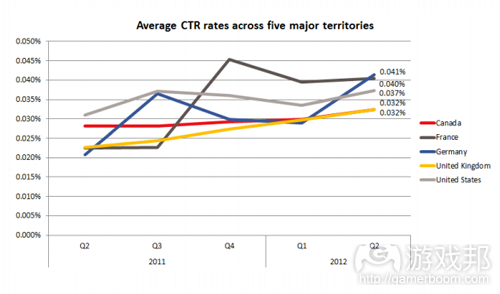
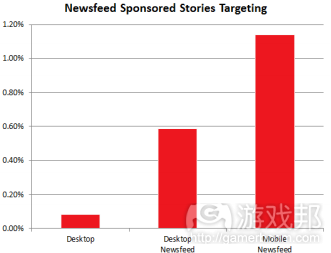
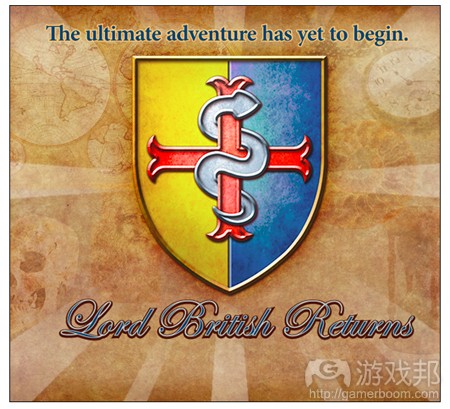
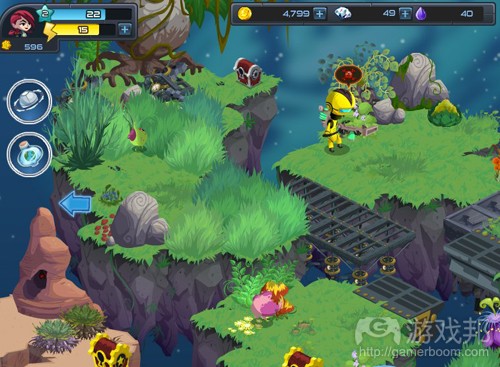
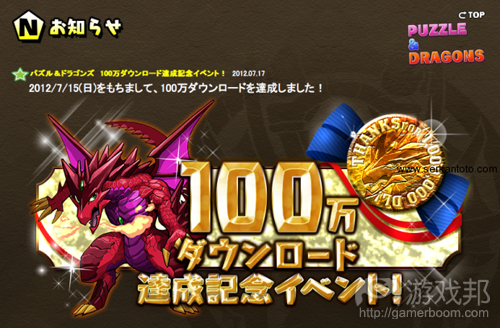
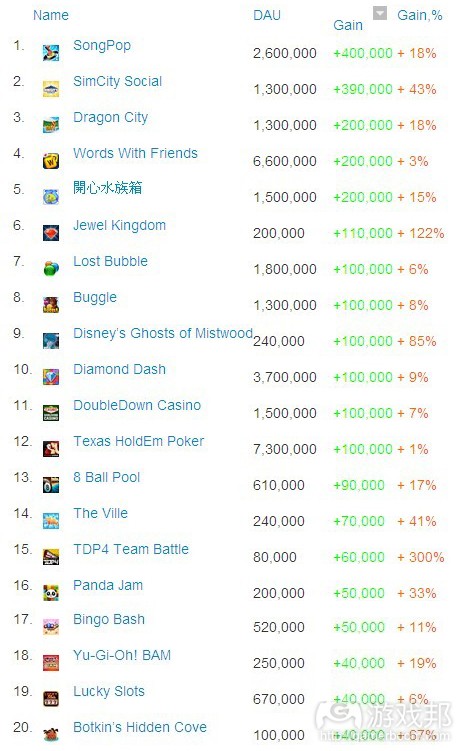














 闽公网安备35020302001549号
闽公网安备35020302001549号